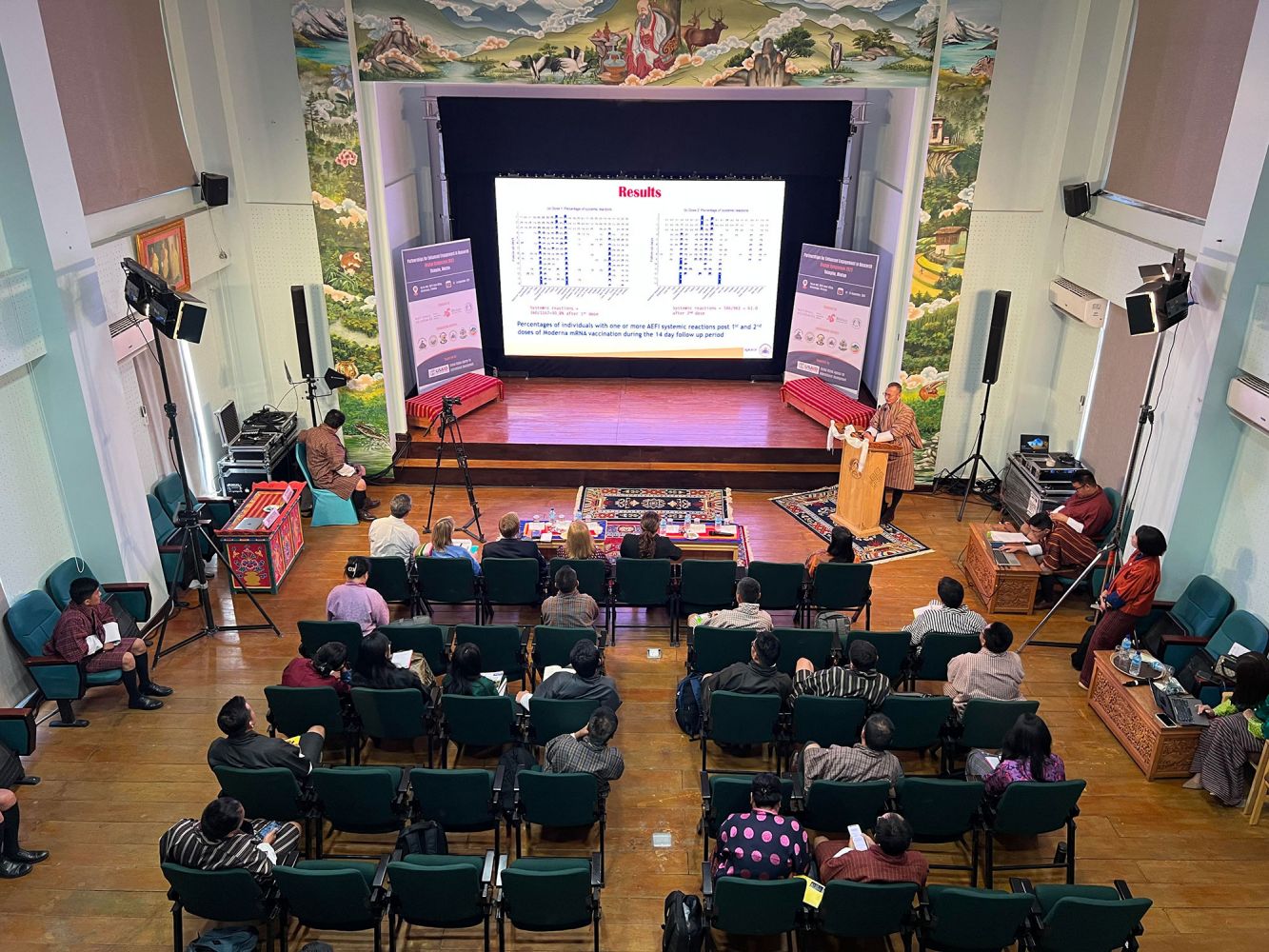
People living with HIV (PLHIV) in Bhutan often face social isolation, discrimination, and violence, which deter vulnerable groups from getting tested and contribute to the spread and progression of the disease, a study has found.
Research on the quality of life and psychological well-being of individuals living with HIV in Bhutan showed that nearly 70 percent of respondents rated their quality of life as either good or very good, while 10 percent reported poor to very poor.
The lead researcher, Nidup Dorji (PhD) said that lower quality of life and well-being were more commonly reported among females.
“Education also played a role, with those having some level of education reporting higher quality of life compared to those with no formal education,” he said, presenting the findings at the Bhutan Research Symposium yesterday.
Married individuals with strong family relationships and better social support reported higher quality of life, while lower quality of life was observed among participants with lower individual and household annual incomes.
From 1993 until December 2022, Bhutan reported a total of 874 cases, with 456 being males and 418 females. Notably, approximately 70 percent of HIV cases in Bhutan occur among individuals within the economically productive age group.
The research aimed to assess the state of the local HIV epidemic, examine the types of stigma and discrimination surrounding it, and understand how PLHIV in Bhutan experience these challenges and their impact on their quality of life and well-being.
The research suggests the importance of combating stigma and discrimination through advocacy, involving relevant stakeholders in consultations, engaging families and household members, and promoting innovative community-based campaigns to reduce stigma through social and community mobilisation efforts, among other strategies.
Nidup Dorji said that stigma and discrimination remain significant concerns in society. “To address these issues and their consequences, it is crucial to educate the public about HIV/AIDS, starting within the family. We have moved beyond portraying HIV as a deadly disease and now advocate for understanding it as similar to other conditions like diabetes.”
Nidup Dorji said that it is important for the family members to be involved. “Addressing stigma and its effects starts within the family, and subsequently, stakeholder consultations and assistance play a critical role.”
During the research process, Dorji said that securing funds was a challenge initially. However, once funding was obtained, conducting the research with the assistance of potential participants became more manageable.
Another challenge faced was scheduling meetings with participants, as some individuals could not be reached at the appointed times, and research assistants could not compel their participation.
The Bhutan Research Symposium was organised by the Bhutan Foundation in collaboration with the United States Agency for International Development.












